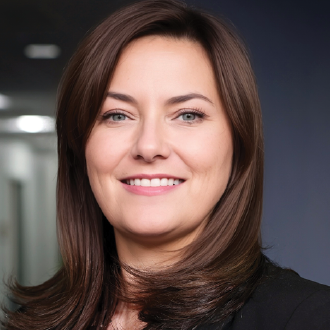A Conductor of Partnerships: Dr. Tom Nevill on Innovation and Apprenticeships at GateWay Community College
Located in the metropolis of Phoenix, Arizona, GateWay Community College is at the center of both growing industries and a growing population.


As more and more is demanded of higher education, academic administrators in operations roles are increasingly the architects of institutional transformation. Far from the traditional perception of logistics managers, these leaders are strategically shaping the student experience, driving efficiency, and fostering a culture of continuous improvement. Dr. Stephanie Poczos, Vice Provost of Academic Operations and Quality at Excelsior University spoke with the AcOps Magazine about how she has seen this play out first-hand at her institution.
No one understands shifting business models more than leaders at universities undergoing major changes. Excelsior University recently made a significant pivot, transitioning from its historical model of a credit-aggregating college to a more traditionally structured university focused on retention and graduation. This change placed academic operations at the forefront of their strategic initiatives.
As Dr. Poczos explains, “We’ve had to stand up the infrastructure associated with a university.” This included establishing academic departments, a robust academic governance model, new councils, and much more. Dr. Poczos walked us through what this ambitious transition looked like in practice and what role academic operations played throughout. “Academic operations are all encompassing, and it includes the whole university,” she noted when walking through Excelsior’s journey.
As part of setting up new structures to support their new university status, Excelsior established a curriculum council. Historically, new program development was ad hoc and lacked a consistent approval process with clear timelines. “We needed a really standard process,” Dr. Poczos explains. “And for almost all the things that we’ve worked on in the past few years, it was really about creating efficiency, creating guidelines so that we could hold people accountable.”
Now, every new program proposal undergoes rigorous evaluation by the curriculum council, focusing on ROI and market analysis. This includes scrutinizing market demand, competitor analysis, regional enrollment trends, potential partnerships, projected student enrollment, and break-even points. From a financial feasibility perspective, Dr. Poczos asks, “What’s the return on investment? What’s the market analysis? What are all the things that need to be researched and agreed upon before we spend money to build the program?”
Beyond curriculum, Excelsior is also re-engineering its scheduling process. This involves creating clear program pathways by identifying every required course for a major, standardizing course descriptions, and recommending sequences for general education. Concurrently, they are implementing continuous registration. Dr. Poczos walked us through what this looks like in practice. “When a first-year gets here at the beginning, say in January, we register them for the entire year.”
This initiative, coupled with the aspiration to use AI for predictive scheduling, promises significant benefits. “It’s challenging. But the payoff is going to be amazing,” Dr. Poczos affirms. “We will be able to offer less sections and fill the sections up more. We’ll be able to tell students definitively, ‘This is what your year is going to look like. These are the classes you’re going to take.’ We’ll be able to pre-register them for an entire year. So that’s a way we’re really looking for AI to help us solve the problem of having such disparate scheduling.”
Policies have a critical impact on how an institution operates; however, a ballooning number of policies can lead to inconsistent guidance and confusion. Dr. Poczos recently set out to make sure this was no longer the case at Excelsior. After a streamlining of academic policies, the institution was able to dramatically reduce them from a daunting 171 to a concise 34.
This initiative was born out of a critical need for clarity and efficiency. “We had a lot of procedures that were initially called policies,” Dr. Poczos notes. “People didn’t know the difference between a policy and a procedure. So everything was called a policy. But really it was how you’d get something done. So we split out policies and procedures.” This overhaul has not only created formal policies but also eliminated duplicate work and confusion.
The impact extends beyond mere efficiency; it also directly impacts student success. Previously, a lack of clarity around academic honesty policies and inconsistent tracking of violations created challenges for both students and faculty. Now, a newly established academic honesty council has implemented clear policies, procedures, and comprehensive training. This is particularly crucial in the age of artificial intelligence. Dr. Poczos emphasizes, “that has had a big impact, especially with the advent of AI... We’ve had to do a lot of work to make sure students understand what is appropriate use of AI in terms of submitting an assignment.” She adds, “Now the student knows exactly what to expect if they’ve had an academic integrity violation. In the past, it wasn’t as clear, and our faculty weren’t as clear on what to do about it.”
Throughout all of these initiatives, Dr. Poczos underscored the critical role of strong project planning and communication to achieve academic and program outcomes. She believes many institutions fall short by just focusing on the next step rather than defining long-term success. “You need to be an incredible project planner,” she advises, emphasizing the importance of backward design and continuous improvement. She encourages institutions to ask: What is the goal and when do you expect to get there? What will you evaluate? What does success look like?
Accountability is also key. At Excelsior, staff managers are actively involved in monitoring student and program performance data, fostering a culture where data informs decisions and interventions. “If it isn’t measured and discussed, people aren’t working on it,” Dr. Poczos asserts. She also emphasizes that continuous improvement is a collective responsibility: “When you’re looking at continuous improvement, you have to think of everyone that’s involved in continually improving something.” Additionally, the ability to pivot and reallocate resources when something isn’t working is crucial. “You need to be able to say: when it’s not meeting our expectations, we’re going to stop investing in it. We’re going to change and take our energy and our money and invest it in what we think is more predictive here.”
In the near future, Dr. Poczos sees an opportunity for AI to assist with smarter project management. For example, she envisions using AI to identify common problems and duplicative efforts within their project management system. “If there are common problems seen across all projects, how can we fix that? So it’s identifying areas where we’re duplicating work and duplicating solutions over and over again.”
Dr. Poczos closed out our conversation by touching on what it takes to be an effective academic operator. She advocates for more conversations within higher ed about the essential qualities of an effective academic operations professional, as these strategic roles only become more and more important. Beyond the ability to create systems that bring together processes and people to deliver the academic experience, she spoke of a critical need for strong relationship-building skills, active listening, and the ability to articulate one’s skills effectively.
“It’s really important for people who serve in academic operations roles to be able to build relationships. That’s really important at the top and at the bottom.”
Ultimately, Dr. Poczos’s vision illustrates that beyond the need to build bridges and foster collaboration, true impact comes from the strategic integration of planning, data, and technology to drive measurable change. Excelsior University’s pivot serves as a powerful case study for intentional academic operations. It demonstrates how a clear dedication to thoughtful project management, accountability, and an openness to leveraging innovative tools leads to powerful results.